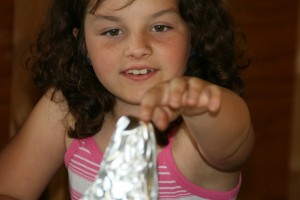Center for Community Inclusion and Disability Studies Toolkit
The University of Maine Center for Community Inclusion and Disability Studies, Maine’s University Center for Excellence in Developmental Disabilities (UCEDD), in collaboration with Maine EPSCoR (Experimental Program to Stimulate Competitive Research), has developed and evaluated a model for supporting the transition of Maine high school students with disabilities into Science, Technology, Engineering and Mathematics (STEM)-related postsecondary educational opportunities within the University of Maine System.
Educator Resources
EPSCoR Funded Curriculum
Cooperative Extension-4H Toolkits – These projects provide an experiential learning opportunity for youth in Maine by providing materials needed to successfully complete experiential learning science-based activities. Groups and youth develop an interest in science through hands on learning. Youth learn life skills through completing these projects. They can study the process of science, engineering and technology, while working as a team to ensure the success of their project.
- Exploring Marine Science and Aquaculture – The Exploring Marine Science and Aquaculture toolkit, developed in partnership with Maine EPSCoR, is based on the National Science Foundation supported SEANET (Sustainable Ecological Aquaculture Network) program. The activities are designed for youth ages 5 – 8. The 12 activities are intended to be an introduction to marine science and the concept of aquaculture. Activities include basic concepts such as animal structure and how that affects movement, and food chains/food webs. NGSS standards are included for each activity.
- Alewives – The Alewives toolkit mixes ecology with technology for a fantastic experience unlike any of our other toolkits. Youth are introduced to the classic Maine Native fish — Alewives, a migratory species that is highly beneficial for aquatic environtments in our state — and are asked to utilize MIT’s Scratch program to better understand the lifecycle, migration patterns, and impacts of Alewives within an ecosystem. Each activity in this kit builds on the one before, culminating in a presentation of each group, using the Scratch program.
- Emerald Ash Borer – This kit serves to educate youth about the threats of invasive species, such as the star of our newest toolkit: the Emerald Ash Borer beetle, an invasive species from Asia. Activities cover themes such as how to determine if an ash tree on your property is being attacked by an Emerald Ash Borer, and how to report/treat such in incidence, as well as broader themes, such as biodiversity. Youth will be able to act out their own mock town hall meeting, and will learn the cultural importance of the sacred Ash tree to Native American populations across Maine. Basket Trees – Sustainable Maine Series
- Maine Lakes – Maine has over 6000 lakes and ponds! Based on research on Sebago Lake conducted by scientists at the University of Maine, the Maine Lakes toolkit will allow youth to explore lake health, both from a water quality and water quantity perspective.
- Sea Vegetables: The Science of Seaweeds – Based on research at the University of Maine on sites along the Maine coast, this Toolkit provides a knowledge base on seaweed identification and classification.
- Vernal Pools – What is a vernal pool, and why should Maine people care about protecting them? Based on research at the University of Maine, the Vernal Pools 4-H Science Toolkit includes activities that take youth from learning about biodiversity, to recognizing what a vernal pool is and how scientists determine if a pool is “significant”. Instructions and materials for visiting and collecting samples from a vernal pool are included!
I am a Scientist
Maine EPSCoR wants to share the unique experiences of three female scientists at the University of Maine pursuing their passions working on National Science Foundation Funded Grants. This lesson plans helps to raise awareness of what is a scientist and create connections between science and participants.

